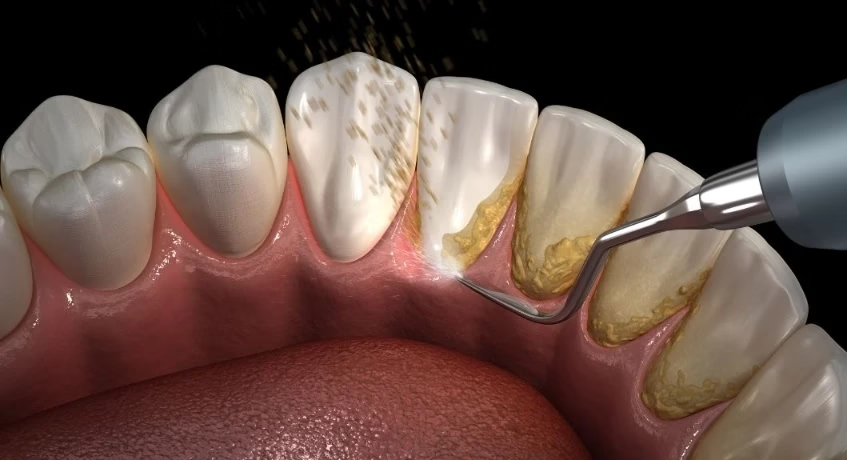Teeth scaling is a professional dental cleaning procedure that removes plaque, tartar (calculus), and bacterial buildup from the surface of teeth and below the gum line. It is an essential treatment for maintaining oral hygiene and preventing gum diseases such as gingivitis and periodontitis. If left untreated, tartar accumulation can lead to serious dental problems, including tooth loss and bad breath. In this article, we will explore what teeth scaling is, how it is done, its benefits, and why it should be a part of your oral care routine.
What Is Teeth Scaling?
Teeth scaling, also known as deep cleaning or dental scaling, is a non-surgical procedure performed by a dentist or dental hygienist. It is designed to remove hardened plaque (tartar) and bacterial deposits that cannot be removed by regular brushing and flossing. Scaling is usually combined with root planing, which smooths the root surfaces of the teeth to prevent further plaque accumulation and encourage gum reattachment.

How Is Teeth Scaling Done?
The teeth scaling process is typically done in a dental clinic using specialized instruments. Here is a step-by-step breakdown of the procedure:
1. Examination of the Teeth and Gums
Before starting the procedure, the dentist examines the patient’s teeth and gums using a dental mirror and probe. X-rays may also be taken to assess the extent of tartar buildup beneath the gums.
2. Scaling Process
The dentist or hygienist uses one or both of the following methods for scaling:
- Ultrasonic Scaling: A vibrating ultrasonic scaler uses high-frequency sound waves to break down plaque and tartar. The device sprays a cooling mist of water to wash away debris and bacteria.
- Manual Scaling: A hand scaler or curette is used to scrape off stubborn tartar deposits from the teeth and under the gumline.
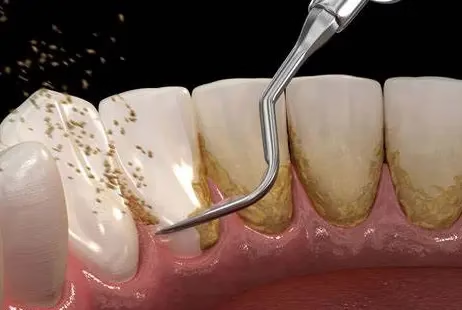
3. Root Planing (If Necessary)
If gum disease is present, root planning may be performed. This procedure smooths rough areas on the teeth’ root surfaces to prevent bacteria from sticking and promote gum healing.
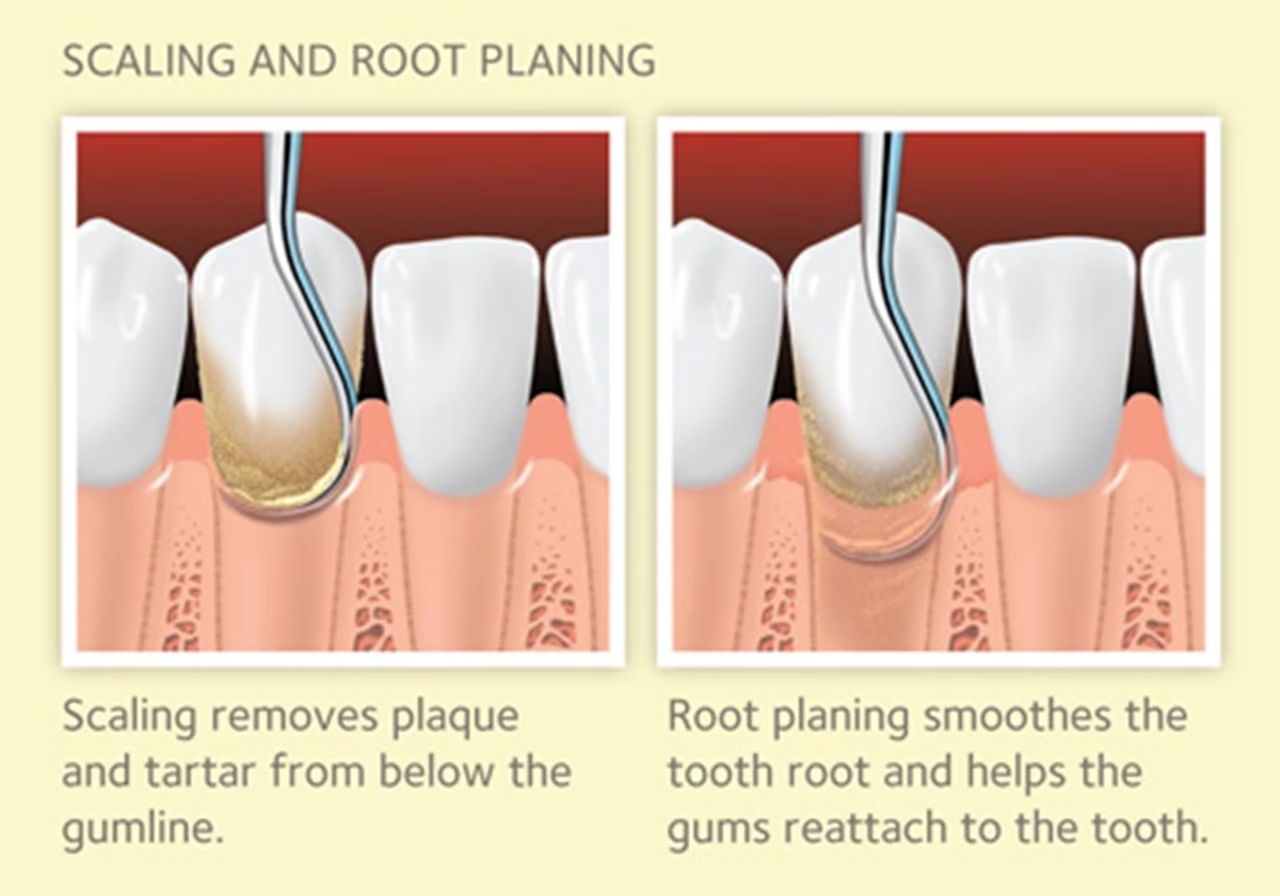
4. Fluoride Treatment (Optional)
After scaling, a fluoride treatment may be applied to strengthen tooth enamel and reduce sensitivity.
5. Post-Treatment Care Advice
The dentist provides instructions on how to maintain oral hygiene after scaling. Patients may experience mild sensitivity or gum tenderness for a few days, which usually subsides on its own.
Benefits of Teeth Scaling
Teeth scaling offers numerous benefits for oral health. Some of the key advantages include:
1. Prevents Gum Disease
Scaling helps remove plaque and tartar that contribute to gingivitis and periodontitis. By eliminating harmful bacteria, it prevents gum infections and promotes overall gum health.
2. Reduces Bad Breath
Bacterial buildup in the mouth often causes persistent bad breath (halitosis). Scaling removes these bacteria, resulting in fresher breath.
3. Prevents Tooth Loss
Gum disease is a leading cause of tooth loss in adults. Scaling removes the harmful deposits that weaken the supporting structures of teeth, thereby preventing premature tooth loss.
4. Improves Overall Health
Poor oral hygiene has been linked to various systemic health issues, including heart disease and diabetes. Regular scaling reduces inflammation and minimizes the risk of bacteria entering the bloodstream.
5. Enhances Smile Aesthetics
Scaling removes stains caused by coffee, tea, tobacco, and food, leading to a brighter and healthier-looking smile.
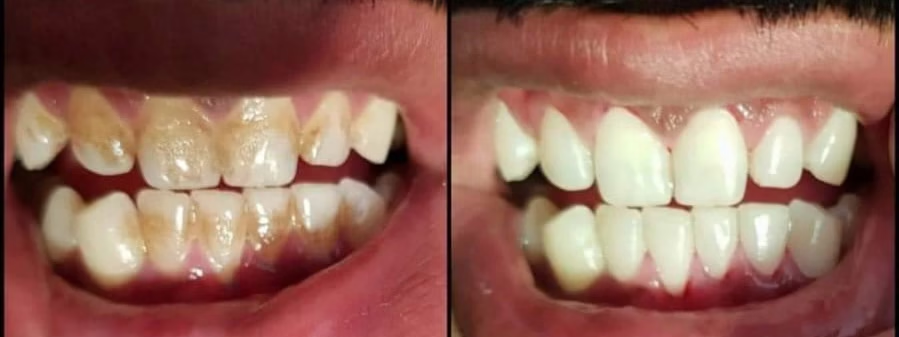
How Often Should You Get Teeth Scaling?
The frequency of scaling depends on individual oral health conditions. Most dentists recommend professional cleaning every six months for individuals with good oral hygiene. However, patients with gum disease may need scaling every three to four months to prevent disease progression.
Common Myths and Misconceptions About Teeth Scaling
There are several myths associated with teeth scaling, which can lead to unnecessary fear or reluctance. Let’s debunk some of these misconceptions:
Myth 1: Teeth Scaling Weakens the Teeth
Fact: Scaling does not weaken teeth. It only removes plaque, tartar, and bacteria, making the teeth and gums healthier.
Myth 2: It’s a Painful Procedure
Fact: Scaling is usually painless, but some patients may experience slight discomfort, especially if they have sensitive teeth. A local anesthetic can be used for added comfort.
Myth 3: Scaling Causes Gaps Between Teeth
Fact: Tartar buildup can cause the gums to recede, creating spaces between teeth. Scaling removes the tartar, revealing the natural gaps that were previously hidden.
Tips for Maintaining Oral Hygiene After Scaling
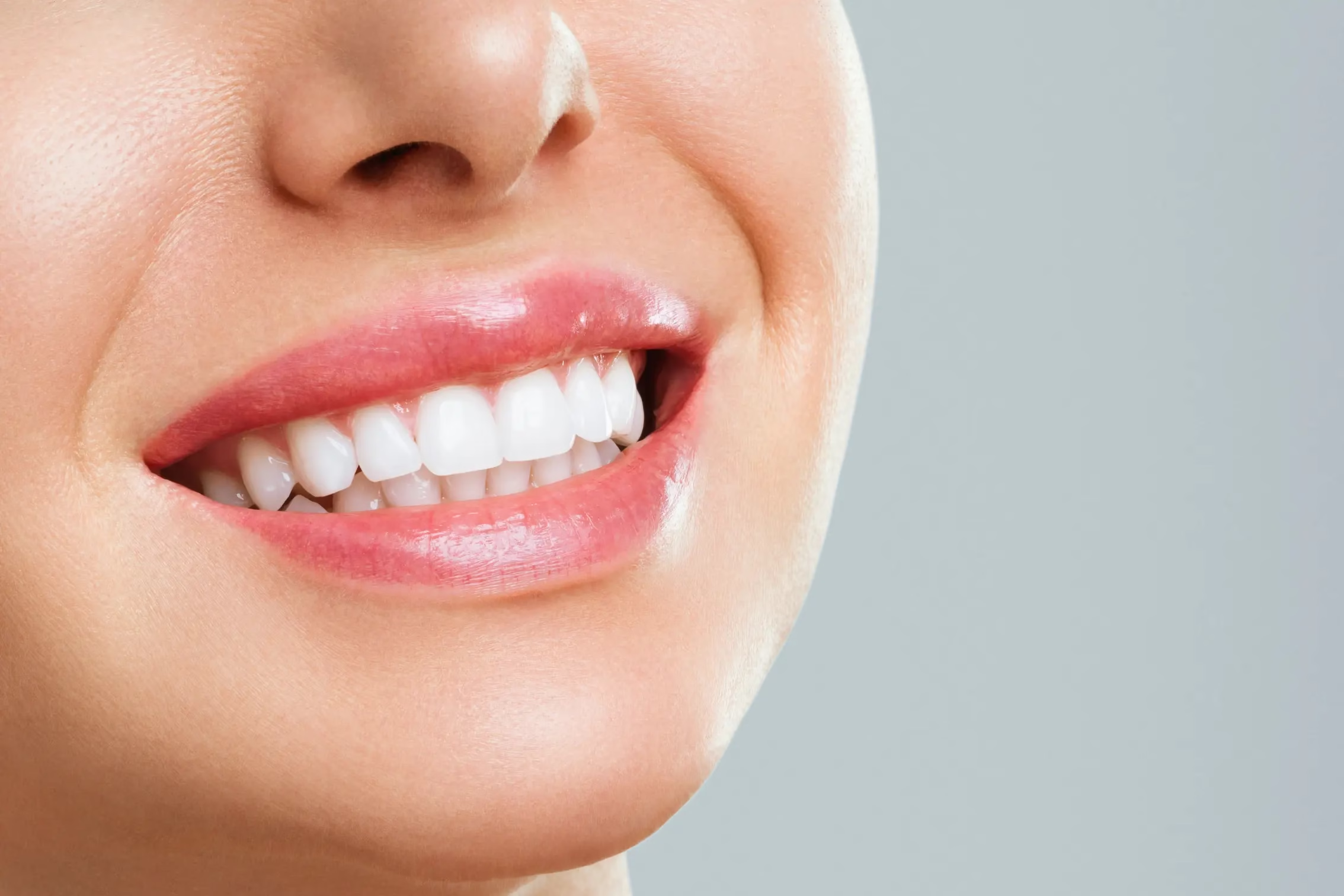
To maintain the results of teeth scaling, follow these oral care tips:
- Brush Twice a Day with fluoride toothpaste and a soft-bristled toothbrush.
- Floss Daily to remove plaque between teeth and prevent gum disease.
- Use an Antiseptic Mouthwash to kill bacteria and freshen your breath.
- Avoid Smoking and Excessive Sugar Consumption, as they contribute to plaque buildup.
- Stay Hydrated to stimulate saliva production and wash away food particles.
- Schedule Regular Dental Visits for checkups and professional cleanings.
Conclusion
Teeth scaling is a crucial part of maintaining excellent oral hygiene. It helps prevent gum disease, improves breath, and keeps your smile bright and healthy. While some people may fear the procedure, it is a safe and effective way to protect your teeth and gums. If you haven’t had a professional cleaning recently, schedule an appointment with your dentist today and take the first step toward better oral health.
By understanding the importance of teeth scaling and maintaining good oral care habits, you can enjoy a lifetime of healthy teeth and gums!
Sources:
- https://www.who.int/health-topics/oral-health
- https://www.ada.org/
- https://www.mayoclinic.org/

